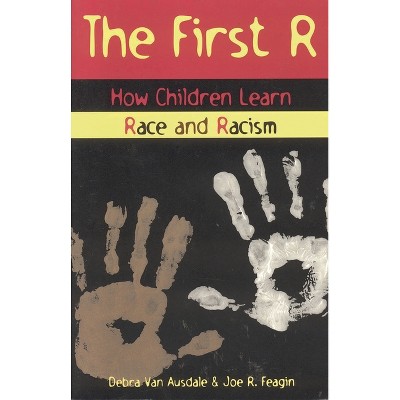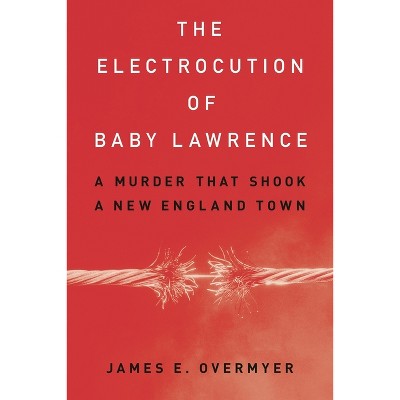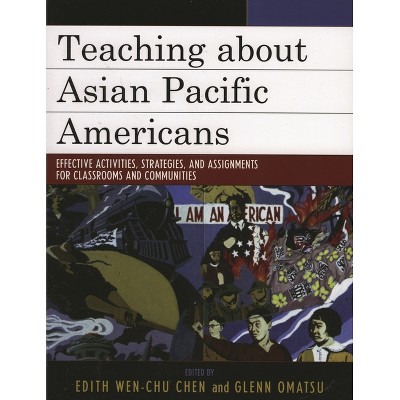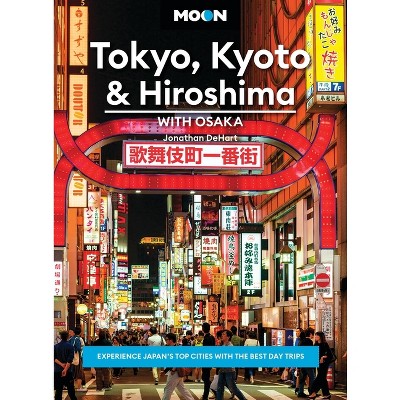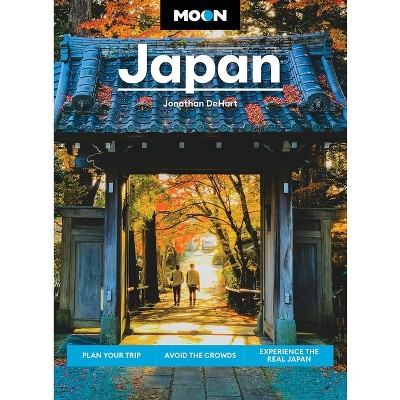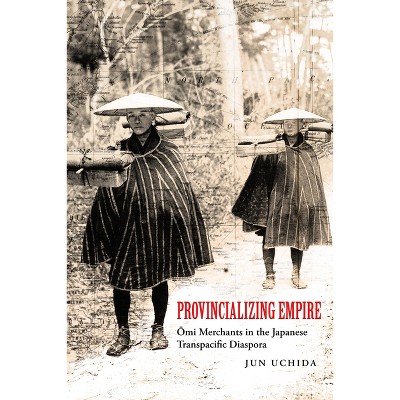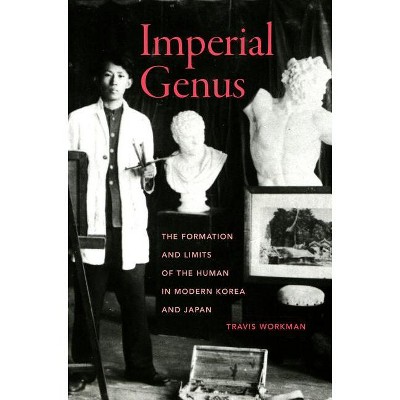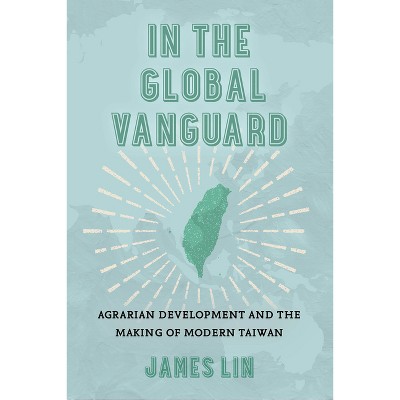Sponsored

Poisoning the Pacific - (Asia/Pacific/Perspectives) by Jon Mitchell (Paperback)
In Stock
Sponsored
About this item
Highlights
- For decades, the US military has been contaminating the Pacific region with toxic substances.
- About the Author: Jon Mitchell is an investigative journalist with the Okinawa Times and winner of the 2015 Foreign Correspondents' Club of Japan's lifetime achievement award for press freedom.
- 316 Pages
- History, Asia
- Series Name: Asia/Pacific/Perspectives
Description
About the Book
For decades, the US military has been contaminating the Pacific region with toxic substances. Service members, their families, and residents have been exposed-but the US has long hidden the damage and ignored victims. This explosive book reveals the extent of contamination in ...Book Synopsis
For decades, the US military has been contaminating the Pacific region with toxic substances. Service members, their families, and residents have been exposed--but the US has long hidden the damage and ignored victims. This explosive book reveals the extent of contamination in the Pacific and the lengths the Pentagon will go to conceal it.Review Quotes
In 'Poisoning the Pacific, ' investigative journalist Jon Mitchell offers a deeply reported and impressively complete look at the environmental damage done by the U.S. military in the Pacific since World War II. Many readers will already be familiar with the legacy of nuclear testing in the Pacific, and Mitchell goes beyond those nuclear tests to include the long-term effects of chemical and biological weapons tests conducted on and near U.S. territories and military installations. Mitchell painstakingly reviewed thousands of pages of official documents obtained through public records requests, and interviewed survivors, service members, whistleblowers and Indigenous leaders. Together, their stories paint a picture of an indifferent superpower, willing to endanger the lives and health of hundreds of thousands of people in order to gain an upper hand in geopolitics.
Mitchell also connects the environmental crimes of the past to environmental destruction in the present. Current servicemembers and their families, as well as those who live near U.S. military bases, will see themselves in chapters about contemporary water contamination that is still occurring on the mainland and on U.S. territories such as Guam. Ultimately, this book promises to frustrate official attempts to cover up or whitewash the environmental impacts of America's military history, and open the eyes of the public. (From SEJ's 2021 Rachel Carson Environment Book Award, Second Place judges' comments)
Jon Mitchell, a British investigative journalist in Japan, cuts an assured path through decades of disinformation, dissembling and spin to bring the abject evil of each military atrocity and its consequences into the full glare of the light. The result is devastating: a litany of war crimes, leaks of radiation and biochemical weapons, inept clean-ups, poisonings and cover-ups.... Mitchell distills a decade of research into an intense and compelling account, drawing on over 10,000 pages grudgingly released by the US military, CIA and State Department through the Freedom of Information Act, and countless interviews with whistleblowers, base-workers and victims.
Mitchell's advocacy for human and environmental justice pushes for sweeping change as he offers up a blueprint of hope in the last chapter and a call to action boldly addressed to the American government. . . . Mitchell catalogues in detail the present-day victims of the poisoned Pacific: indigenous residents of Okinawa and various Pacific islands, forced to help clean up chemical spills, drink contaminated water, and deal with ruined soil and rampant disease; the waters of the Pacific Ocean itself, containing thousands of liters of leaking contaminated barrels; the unprotected American military personnel and their families stationed in Japan and exposed to dangerous chemicals that cause birth defects and cancer.
Poisoning the Pacific by Jon Mitchell is an eye-opening addition to the annals of American military history. Chronicling a dark and unsettling history of pollution, Mitchell provides a definitive account of how the U.S. military has endangered the health and safety of millions of people across the Pacific region. A journalist based in Japan, Mitchell has spent years amassing records through the Freedom of Information Act about the contamination at military bases in Japan, Guam, the Marshall Islands, and other places in the Pacific. Poisoning the Pacific will therefore appeal to those readers interested in military and environmental history, international relations, defense policy, and the Asia-Pacific region in the twentieth and twenty-first centuries.
The US military and the US Defense Department have the maddening habit of reflexively refusing to acknowledge almost anything that could possibly be construed as making them look bad. One of the consequences of this habit of denial is that the military's right hand rarely knows much about what its left hand is up to. Rather than admit this ignorance, however, military leadership insists that the armed forces are entirely honourable and that they are therefore incapable of doing anything nefarious. It takes books like this to thrust these dirty deeds out into the open.
This is an exquisitely researched book. Its comprehensive analysis is based on hard evidence, much of which is contained in US records. It reveals that when accidents with pollutants occurred, there were few lessons learned and little attempt made to train military personnel to handle these chemicals with safety to themselves and the environment.... Michell's credentials and honors attest to his expertise with a plethora of sources, including Japanese records. His endnotes are full and relevant. This is a convincing study of war damage--but more so, the real environmental and human costs of "eternal vigilance" in maintaining the US war machine. I have taught several courses on the environmental history of the Pacific, and I wish this book had been available at that time. It adds much to the understanding of the way governments can work when they take their eyes off their own and other people and simply see the world though the crosshairs of the gun.
As the international security situation is worsening and nuclear-armed states are once again threatening to use nuclear weapons, Poisoning the Pacific contains incredibly important research and stories of the humanitarian and environmental impact of weapons. This book sends a powerful message that far from protecting us, nuclear weapons and other weapons are causing enormous harm to people and the environment.
Poisoning the Pacific is a meticulous inventory of the grievous harm that nuclear tests and the deployment, storage, and disposal of hazardous materials have wreaked on land and ocean areas. But the analysis goes beyond this. The tests and bases have displaced local residents and caused illness and even deaths among them. Mitchell places this in the context of crimes against humanity and crimes against human rights, and notes that decades of callous and careless military activity have also harmed American servicemen involved in carrying out toxic activities, as well as their wives and children living on bases where contamination has taken place. (From the introduction)
Poisoning the Pacific is a must-read for anyone concerned about US military veterans and the impact of US wars on civilians. From World War II through the present, we've bombed and poisoned ourselves and innocent civilians on the island of Okinawa, as well as other Pacific islands. Through diligent reporting and heroic research in never-before-revealed documents, journalist Jon Mitchell exposes numerous lies and coverups by the US military. His book is a siren call to help veterans―and to finally give Okinawa back to the Okinawans.
Poisoning the Pacific is an enormously valuable book. Jon Mitchell's expertise on US military operations across Japan and on the US military's contamination of Okinawa, where he ably guided us both during a recent visit, is unparalleled. Much of what he exposes here is truly shocking, and we expect most readers will share our outrage over what he reveals. With a vibrant and compelling style, Mitchell has written an eye-opening critique of America's role in the Pacific world, the place where the great battles of the twenty-first century are already being waged, won, and lost.
Poisoning the Pacific is an unprecedented, comprehensive exposé of the human and environmental damage caused by nearly a century of US warmaking, weapons testing, training, and daily military activity in East Asia, the United States, and its colonies/territories. Jon Mitchell's exhaustive research provides a tremendous resource for the thousands, perhaps millions, of victims harmed by a vast array of chemical, biological, and nuclear poisons, as well as for all who believe we must expose and repair the harm inflicted (and often covered up) in the name of supposed security.
The record of criminality, deceit, evasion of responsibility, and disdain for the fate of victims laid forth in this devastating account is difficult to believe. It is an eloquent call to bring this tragedy to an end without delay.
About the Author
Jon Mitchell is an investigative journalist with the Okinawa Times and winner of the 2015 Foreign Correspondents' Club of Japan's lifetime achievement award for press freedom. His work has featured in reports for the US Congress and Japanese parliament; it has also helped US veterans exposed to contamination in Japan to win compensation from the Department of Veterans Affairs. US authorities--including the State Department and Department of Defense--have repeatedly attempted to block Mitchell's work, prompting condemnation from international press freedom groups. He lives in Japan.
John W. Dower is the Pulitzer Prize-winning author of Embracing Defeat: Japan in the Wake of World War II.Shipping details
Return details
Trending Non-Fiction






